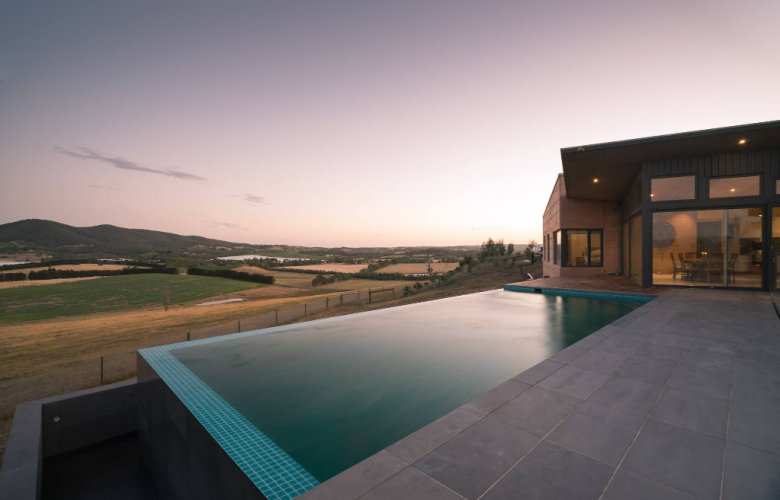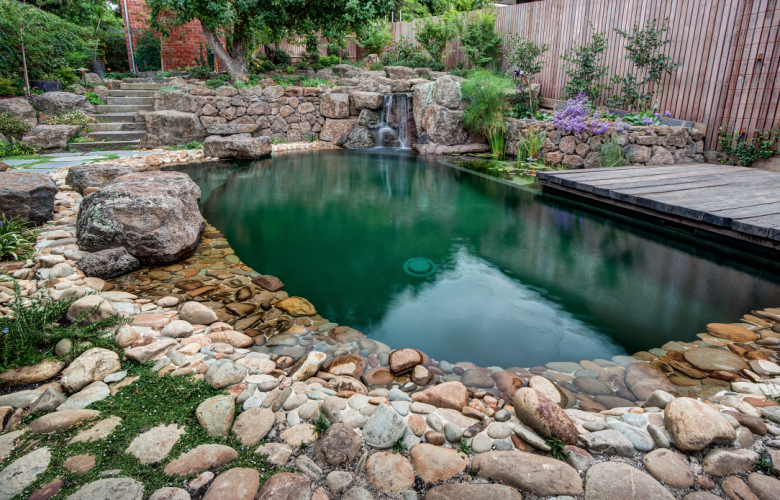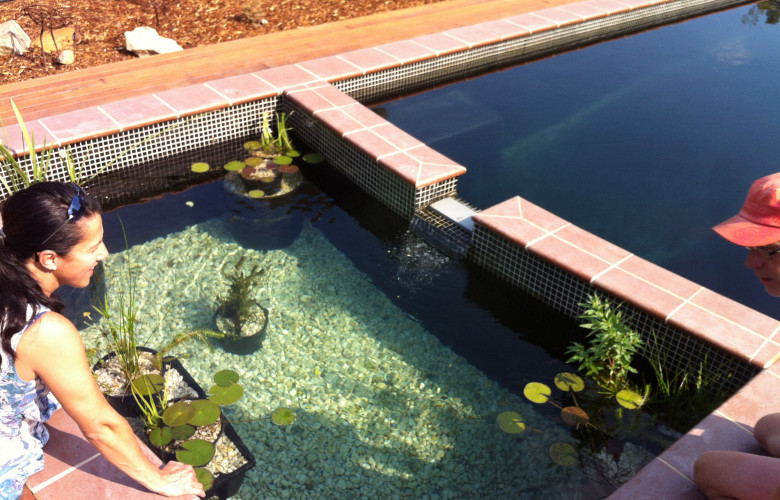Why choose a natural swimming pool?
Contact
Why choose a natural swimming pool?
"Swimming in soft, natural water is untainted, pure joy," says Ralf Schmiel of natural pool specialist, gartenART - Australia.
As the weather begins to turn cool, I am already thinking ahead to next summer, and dreaming of having our own swimming pool.
At the top of my wish list would be a 'natural pool', a pool that doesn't use chlorine or salt to purify the water, but uses natural purifying processes to create clean and healthy water to swim in.
We asked Ralf Schmiel, director of gartenART - Australia, about the advantages of natural swimming pools, and how exactly do they work?
Healthy
"The main reason to choose a natural pool is to avoid the effects of chlorine, in terms of health, smell, bleaching of hair and clothing, stinging eyes and drying of skin," Schmiel told Williams Media. Chlorine can also worsen the condition of asthma, says Schmiel.
"Swimming in natural water is very pleasant; it feels rejuvenating and healthy. Swimming in soft, natural water is untainted, pure joy," he said.
Clean
"The water purity in natural pools is achieved by keeping the nutrient level in the water as low as in mountain lakes and streams, which means unwanted microorganisms can’t grow in the first place. Nutrient control is the main principle that ensures the high-water quality in natural pools and our own health.
"In contrast, water purification in conventional pools is a sanitising process, in which a sanitising agent (chlorine, ozone, silver, ioniser) is employed to kill as many microorganisms as possible. Those techniques also attack, by default, the good microorganisms that make up our human body, which keep also our skin and hair in good health as well as the mucous membranes of our breathing system and the flora of our intestines.
Low energy and resource consumption
"Another important reason to opt for a natural pool, is the lower energy consumption and cost: the bio-technology which I employ can bring energy costs down to one third or even one quarter of usual costs for conventional pools.
"Equally important, our natural pools never need to be emptied and refilled, only topped up, saving water and water cost. And if our bio-filters are flushed three times a year the water is not only suitable for your garden but the accumulated nutrients in the filter water will be useful as a natural fertiliser.
Beauty
"A further motivator to choose a natural pool is the possibility of adding water plants to the design, which integrates a natural pool into the landscape and garden much better than a conventional pool."
Natural pools can use a variety of bio-technologies, and not all are suitable for all climates, says Schmiel. However, he says that natural or bio-pools from gartenART - Australia are suitable for all climates.
Schmiel's favourite natural pools
Schmiel has designed and built about 100 natural pools in five countries, and says he has many favourites. But a Japanese-garden style pool with hut, a pool-crossing walkway and waterfall, the first public natural pool in the UK, stands out to him. The smallest pool Schmiel has done was in London, and had a swimming area of only three meters in diameter. Schmiel tells us the client loved it. Schmiel says a natural pool he did in Greece, flanked by white natural rock walls, right at the edge of the Mediterranean Sea, also stands out as a favourite. It's not hard to see why.
Schmiel says he often integrates natural pools into much-loved gardens, and has created pools from existing ponds or old conventional pools. Water tanks have also been converted to "become a family joy", he said.
"I’m happy about my projects, as long as my clients really enjoy the design and the natural water," says Schmiel.
"We need to value our natural waters and take good care of them. Healthy water is intrinsically connected to a healthy environment and a healthy human body and mind."
Read more about garden and landscape design:
Gidgegannup secret garden the "jewel in the crown"
Study proves improved landscape design attracts more visitors







